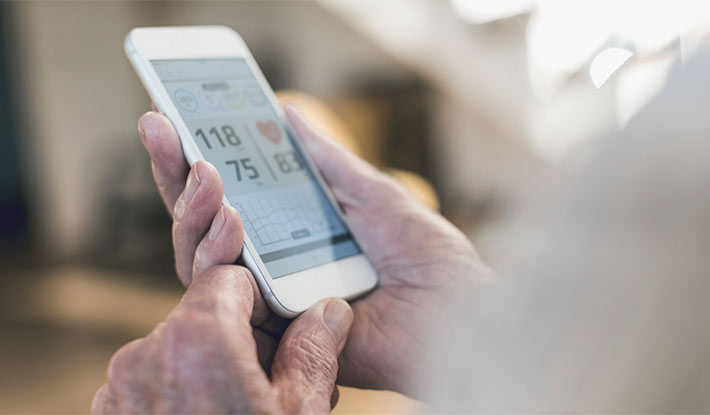Remember when big data was big news? Now all we hear about is AI, but that hasn’t made data any less relevant. Data is the fuel that feeds the business and the future of pharma, let alone AI. The world is becoming more and more data dependent while slow, tectonic shifts are under way across healthcare: There’s an increasing focus on the value of medical care over volume. The patient experience is becoming a higher priority. Data privacy and data ownership concerns are constantly threatening to upend the status quo with regulations that could be hugely disruptive.
What do some of these shifting fault lines mean for the patient, or for pharma companies and their data strategies? To learn more, we sat down with ZS Principal Malcom Sturgis, who recently co-presented on the topic at ZS’s 2019 Impact Summit in a well-attended session called “State of the Data Nation.”
Q: Given the shift in focus toward outcomes and patient centricity, how can pharma companies use data to go beyond drug development in their efforts to help patients?
A: Obviously healthcare providers have led the way with this shift, but then pharma and payers and governments have gotten involved, too. They’re saying, "How do we look at everything that's going on outside of the medical setting and use that to figure out how can we drive health outcomes beyond the traditional tools that we have?"
This requires a couple of steps. One is getting the data. The next step is doing something with it. Getting the data would mean looking at nontraditional sources. There's the whole internet of things, which could include connected medical devices generating data, but it could include a lot of other devices. It could include the proverbial refrigerator that learned about your eating habits. Everyone’s got a phone in their pocket, or an Apple Watch or Fitbit. That's going to tell us a lot about lifestyle and biometrics. And there’s non-device data. You can look at social media feeds. You can look at the growing world of data from social determinants of health.
So healthcare is asking, "What can we do with all this data? Can we give patients nudges that help them change their lifestyles? Can we engage with the community and affect some social factors?" And this is a case where pharma's not really leading the way. A few pharma companies are trying some things, but for the most part, it's other kinds of healthcare companies, hospital systems, health plans or nontraditional players like technology companies blazing the path here. But everyone's interested in this.
Q: Why should pharma be interested?
A: It depends on what you think your mission is as a pharma company. If your mission is to be a manufacturer and distributer of medicines, then maybe you don't need to do that. Your margins may get squeezed, and you may be a less prominent player in patient health, but that's a viable route. If you look at the many companies that have been successful manufacturing generic medicines, for example, you can be successful with that mission. But for the innovator pharma companies, a lot of them think of their mission more broadly than that. Their mission is about improving patient health and that may go well beyond manufacturing. If you want to truly help patients in your therapeutic areas achieve better health, you may need to find ways to go beyond the drug.
Q: If we’re collecting all of this data outside of clinical settings, what are the implications for the patient experience and patient privacy?
A: Let's start with the privacy part. Privacy matters, and in healthcare we're already used to dealing with data privacy for health data. But when we talk about other data sources from outside the clinic, suddenly we don't have that same, straightforward regulatory framework. The companies that have been working with that data are not healthcare companies. They work more loosely with data than pharma. These are tech companies or consumer marketing companies, and they don't have to think about the same kinds of healthcare issues that we do. There are real privacy issues to deal with that may lead to significant legislation, expanding on what we’ve already seen in the EU with GDPR and now in California with the CCPA.
As far as patient experience goes, there's the creepiness factor. You're collecting data to help patients based on what's going on with their phone, their Apple Watch, their refrigerator, and maybe when they use a medical device or give themselves an injection, that generates a data stream. When they go to the doctor and have a conversation, that's captured data. If you're a patient and you hear that all this stuff is being collected and centralized and it's all about you specifically, it makes you feel a little nervous. This is especially true if you hear that it’s not just your doctor collecting this information but a pharma company or an insurance company or a big tech company like Google or Amazon.
Q: You talked about collecting this patient data and then using it to help patients. It seems like everybody across the healthcare ecosystem wants to create their own patient portals and mobile apps to reach them. What are the implications on the patient experience?
A: Let's say I'm a patient and the hospital system that I go to has all sorts of helpful reminders, and there's an app I've gotten from my pharmacy and an app from my insurer. And of course, that one major drug I take every month, that pharma company has an app, and there are a couple of minor therapies I'm on, too, and they each have an app. Also, someone wants to send me reminders on my watch, and so on. You may have five, 10 or 15 different companies trying to help you out. This is confusing.
Where do I go? Which of these things do I value? You'll notice that the one person who didn't get to shape all of these great things available to help the patient was the patient. So I think that the experience is key. If there's a lot of data out there, and if we have a lot of companies with heartfelt intentions to help patients but they're not doing it in a coordinated way where they’re partnering with each other, it's going to be a mess. Fourteen of those 15 efforts will fail. They’ll either be ignored or simply be a nuisance, and it may also mean that an opportunity is missed to do something that bridges and unites all these efforts. Because who owns this ecosystem of patient interfaces? Nobody does.
Q: You mentioned that we may be moving toward patients owning their own data. This would require a legislative and regulatory shift, right? What are the implications for pharma if this occurs?
A: That’s right. It’s a big question and I think we're still figuring it out. The first thing we’ll need to learn is how to expose the data that we have so patients can know what's there and can have some control over what's shared and what isn't shared. More holistically, what would it look like if we have to know what information we have on a given patient? We’d need to let patients know about that and let them have a voice in what's shared, what's used, what's not used and how it's used. So there are a lot of enterprise-level mechanics that have to be built to do this, as well as some standards and procedures and regulatory guidelines that may force the issue.
Stepping beyond the compliance issue, we can think about data strategy a little bit. So if the patient owns the data, then the fundamental questions chief data officers and chief analytics officers would be asking is "How do we understand what data we have within our own company? If that data is owned by the patient, then what are we able to access either directly or indirectly? Where are there holes? How can we build on or augment that data with partners? How do we work with patients to develop use cases for that data?" What they’ll want to do with the data may or may not be what they can do with the data. Some of the biggest opportunities may reside in gaps in the patient experience, and these may be opportunities that aren’t on our radar now but will be new capabilities that companies find they can’t leverage.
Maybe the final thing is that there's an element of data-sharing that goes with this too. Just as we may want to identify data we can use, we should ask "What data are we sharing out, giving to partners or to non-competitive entities?" Maybe we should even be pulling data together with competitors because the sum may be better for the patient and for all of us than the little part we own. This again is not how most companies are used to working apart from the occasional one-off partnership. But if we've got a data-sharing agreement that’s more global and we’re thinking about how we export what we know as well as import, then that's a big shift.













